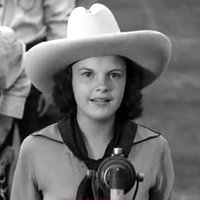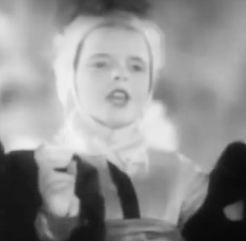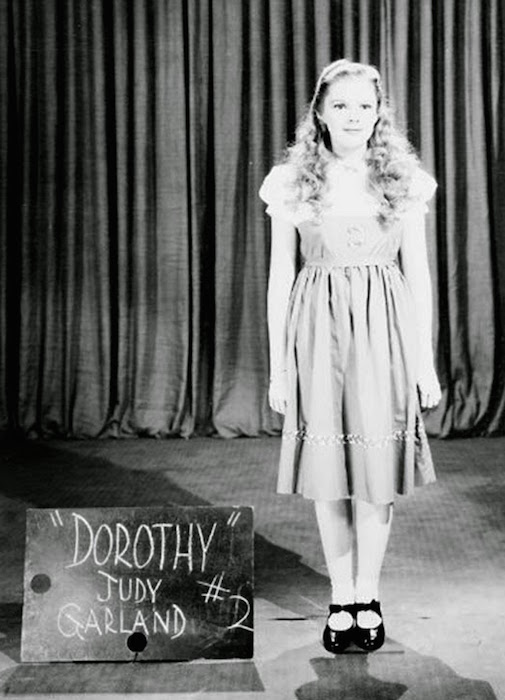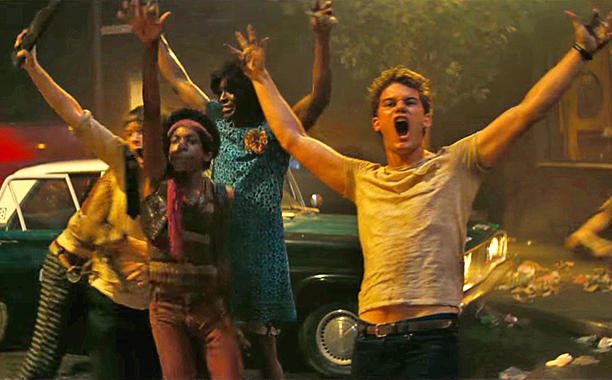Judy by the Numbers: "Americana"
 Wednesday, January 20, 2016 at 8:00AM
Wednesday, January 20, 2016 at 8:00AM  Anne Marie here with one of the foundational building blocks of the legend that is Judy. This week it's the story you've probably heard: young Judy Garland sings in a two-reel with another mostly-unknown MGM child actor named Deanna Durbin. Mayer sees the short and decides to dump one of the girls. Which he chooses and why is up for debate, but the practical fallout turns one girl into a big star at a small studio, and puts the other on the road towards a mythmaking career.
Anne Marie here with one of the foundational building blocks of the legend that is Judy. This week it's the story you've probably heard: young Judy Garland sings in a two-reel with another mostly-unknown MGM child actor named Deanna Durbin. Mayer sees the short and decides to dump one of the girls. Which he chooses and why is up for debate, but the practical fallout turns one girl into a big star at a small studio, and puts the other on the road towards a mythmaking career.
The Movie: "Every Sunday" (MGM, 1936)
The Songwriter: Roger Eden
The Players: Judy Garland and Deanna Durbin directed by Felix E. Feist
The Story: When young Judy had signed with MGM, she had done so without a screentest. The powers that be decided to rectify that in 1936, casting Judy with Deanna Durbin, another girl singer whose classical style contrasted nicely with Judy's big, swingtime voice. Durbin's option at MGM was about to expire, and the studio decided not to renew it. Durbin was rapidly scooped up by Universal, cast in Three Smart Girls, and became a nearly overnight sensation. These are the facts as we know them.
Many variations on this storyfeature heavily in the Judy Garland myth. In some versions, Mayer tells an underling to "get rid of the fat one," and the studio mistakenly lets go Durbin. In others, Arthur Freed recognizes young Garland's talents and intercedes on her behalf. Whatever the real reason was, this story remains the most romanticized near-miss in Hollywood musical history. It's a story of foils: Classical Deanna vs Brassy Judy, the flashpan sensation vs the undying star, the nonegenarian vs the talent gone too soon. Every good myth needs an origin story, and this moment, when Judy's career nearly stopped before it began, serves neatly as the genesis for Judy Garland, Child Star.







